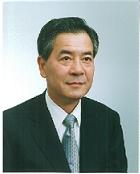January 17/2011
Japan Fair Trade Commission

I was appointed Chairman of the Japan Fair Trade Commission (JFTC)in 2002, so 2011 marks the 9th year of my tenure. As we begin a new year, the JFTC stands committed to the continued vigorous enforcement of the Antimonopoly Act and the Subcontract Act.
As you know, the JFTC has been enforcing the revised Antimonopoly Act since January 2010. This revised contains revisions of the surcharge system, revisions of merger regulations including the introduction of a prior-notification system for acquisition of shares, the imposition of a longer sentence of imprisonment in criminal cases involving unreasonable restraint of trade. It is especially notable that the above surcharge system underwent major revisions. More specifically, the types of practice subject to the surcharge have been expanded to include exclusionary types of private monopolization and abuse of superior bargaining position. In addition, the surcharges have also been made applicable to certain types of unfair trade practices: refusal to trade,discriminatory pricing, unjust low price sales, and resale price restrictions on and after the second offense of the same type of infringement within a ten-year period. A number of other revisions have also been made in the surcharge system. Including the imposition of higher surcharge rates on enterprises that have played a leading role in cartels and bid-rigging; joint application for leniency by multiple numbers of enterprises belonging to the same corporate group; increase in the number of enterprises that can apply for leniency in a single case, and the extension of the statute of limitations for the issuance of surcharge payment orders. The JFTC believes that appropriate implementation of the revised Antimonopoly Act including the above revisions, effectively deter and eliminate violations of the Antimonopoly Act at the earliest possible stage.
In March 2010, the JFTC submitted a bill to the 174th ordinary session of the Diet for the amendments of the Antimonopoly Act. Including abolition of the JFTC ex-post hearing procedures for administrative appeal. This bill was table for further deliberations at the end of the Diet session (on 16th, June 2010). The deliberations for this bill were not conducted in the following 175th and 176th extraordinary sessions of the Diet, and the bill was again tabled for further deliberations. The JFTC earnestly hopes that the deliberations for the bill will be started at the earliest possible date in the upcoming 177th ordinary session of the Diet in 2011 and is willing to continue further efforts for the smooth deliberations.
The JFTC deals swiftly and vigorously with unfair trade practices that are detrimental to small and medium-sized enterprises (SMEs), including the abuse of superior bargaining positions and violations of the Subcontract Act. Responding to the feet that the abuse of superior bargaining positions became subject to the surcharge payment orders, the JFTC formulated, in November 2010, the “Guidelines concerning the abuse of superior bargaining positions under the Antimonopoly Act.” The purpose of the guidelines is not only to secure further transparency of law enforcement but also to improve predictability by the enterprises by making the policy regarding the abuse of superior bargaining positions clear enough. Due to the current harsh economic conditions, it is concerned that the SMEs are prone to be adversely affected by unjust pressures brought upon them in transactions. Therefore, the JFTC believes, from the viewpoint of effectively deterring the abuse of superior bargaining positions, it is beneficial that we, the JFTC, disclose the policy for regulating the abuse of superior bargaining positions with the above guidelines.
Amid the globalization of corporate activities in recent years, international cartels have exerted a major and increasingly powerful influence on the Japanese market. To vigorously address such international cartels, the JFTC established a special task force in the Investigation Bureau, in April 2010, to accumulate the knowledge and knowhow necessary to investigate these international cartels and to efficiently deal with the cases. Moreover,the JFTC has been investigating the merger cases between/among overseas enterprises that may exert influences on the Japanese market. More specifically, one example of such cases was that BHP Billiton and Rio Tinto planned to establish a joint venture for production of iron ore. In response to the request for prior consultation submitted to the JFTC from the parties in January 2010, the JFTC reviewed details of the proposed transaction and pointed out, in September 2010, the problems that may conflict with the Antimonopoly Act. Thereafter, since the parties announced the cancellation of their plan, the JFTC closed the investigation based on their prior consultation. The overseas competition authorities such as those in Australia and Europe also conducted their own reviews into case. This example was one in which the JFTC exchanged information with the relevant overseas competition authorities in order to properly conduct the investigation.
To address international cases like above,it is indispensable to establish close cooperation with the overseas competition authorities. For example, International Competition Network (ICN) has hosted the Cartel Workshop every year since 2004. The purpose of this workshop is to share investigation technique and problems among officials in charge of cartel investigation in the competition authorities and to provide opportunities for younger authorities to learn about the cartel investigation technique. The JFTC hosted this workshop in Yokohama in October 2010, whose theme was the “efficient detection, investigation and punishment of cartel conduct – making the best use of agency resources.” In this workshop, JFTC officials assumed the role of panelists and moderators in quite several sessions, and lively discussions were conducted among the participants. The JFTC will actively contribute toward strengthening links and cooperation among competition authorities, including contribution to the ICN activities.
In 2011, the JFTC will remain committed to appropriate law enforcement starting with the types of issues discussed above, and to meet the public expectations by performing our duties and responsibilities.
*Every announcement is tentative translation. Please refer to the original text written in Japanese.






